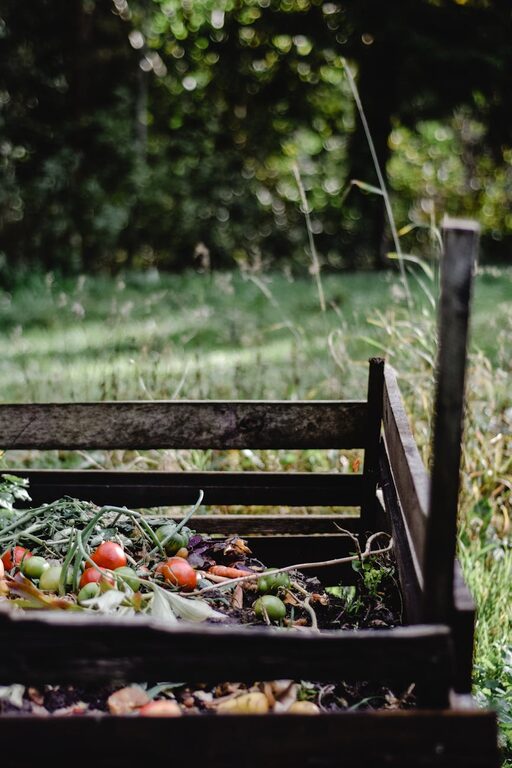Composting at home is a fantastic way to reduce kitchen waste, enrich your garden soil, and contribute positively to the environment. If you’re new to composting, the process might seem confusing at first, but with a few simple tips, you can start your own compost pile or bin with confidence. This guide offers beginner-friendly advice to help you make composting a successful and enjoyable part of your routine.
What Is Composting and Why It Matters
Composting is the natural process of recycling organic materials, such as food scraps and yard waste, into a nutrient-rich soil amendment called compost. Instead of these materials ending up in the landfill, composting turns them into valuable “black gold” that improves soil health, supports plant growth, and reduces the need for chemical fertilizers.
By composting at home, you play an active role in reducing greenhouse gas emissions and minimizing waste. Plus, it’s free, simple, and rewarding!
Getting Started: Choose Your Composting Method
Before you begin, decide which composting method works best for your space and lifestyle. Here are common options:
1. Compost Bin
A compost bin is a container designed to hold your organic waste while it breaks down. Bins can be purchased or homemade and help keep compost tidy and contained, reduce pests, and make turning the material easier.
2. Compost Pile
If you have a backyard, you can create an open compost pile. This method requires more space and attention to moisture and aeration but is low-cost and effective.
3. Vermicomposting (Worm Composting)
This method uses worms to break down food scraps quickly, ideal for indoor composting or those with limited outdoor space.
Essential Composting Tips for Beginners
Starting with the right practices will set you on the path to successful composting. Here are key tips to keep in mind:
1. Know What to Compost
Not all kitchen and yard waste is suitable for composting. To avoid odors and pests, stick to these accepted items:
– Fruit and vegetable scraps
– Coffee grounds and filters
– Tea bags (non-plastic)
– Eggshells
– Grass clippings
– Leaves
– Small branches and twigs
– Shredded newspaper and cardboard
Avoid composting meats, dairy, oils, pet waste, and diseased plants as these can cause problems in your pile.
2. Balance Greens and Browns
Compost requires a mix of “greens” (nitrogen-rich materials) and “browns” (carbon-rich materials). Greens include fresh food scraps and grass clippings, while browns consist of dry leaves, straw, paper, and cardboard.
Aim for roughly 2–3 parts browns to 1 part greens. This balance helps your compost break down efficiently and prevents odors.
3. Chop or Shred Materials
Cutting your compost materials into smaller pieces speeds up the decomposition process. You can use scissors, garden shears, or a shredder to break down tougher items like branches and large vegetable scraps.
4. Keep It Moist
Think of your compost pile as a damp sponge. It should be moist but not soggy. If it’s too dry, the bacteria won’t thrive; if too wet, it can become smelly and slimy.
Water your compost occasionally and add dry browns if it gets too wet.
5. Turn the Pile Regularly
Aeration provides oxygen to the bacteria and organisms breaking down the material. Turning or mixing your compost once a week helps speed up decomposition and reduces odor.
If you have a compost bin with ventilation holes, this is especially important.
6. Be Patient
Composting isn’t instant! It may take anywhere from a few weeks to several months for your compost to fully break down, depending on the materials, size, and conditions. Finished compost looks dark, crumbly, and earthy-smelling.
Common Challenges and How to Fix Them
Even with the best intentions, issues can occur. Here’s how to troubleshoot common composting problems:
| Problem | Cause | Solution |
|—————-|———————————-|———————————|
| Foul smell | Too much moisture or greens | Add browns, turn pile |
| Pests | Food scraps like meat or improper covering | Avoid restricted items, cover food |
| Slow breakdown | Not enough air or balance issues | Turn pile, add more greens/browns |
| Dry pile | Lack of moisture | Add water, cover to retain moisture |
Using Your Finished Compost
Once your compost is ready, you can use it as:
– A nutrient-rich soil amendment mixed into garden beds
– Mulch around plants to retain moisture and suppress weeds
– Potting mix ingredient for container plants
Your plants will thank you with healthier growth!
Final Thoughts
Starting to compost at home is easier than you might think. By following these beginner tips — balancing materials, keeping the compost moist and aerated, and being patient — you can turn everyday food scraps and yard waste into a valuable resource for your garden. Enjoy the process and the positive impact your composting efforts make on your plants and the planet.
Happy composting!



